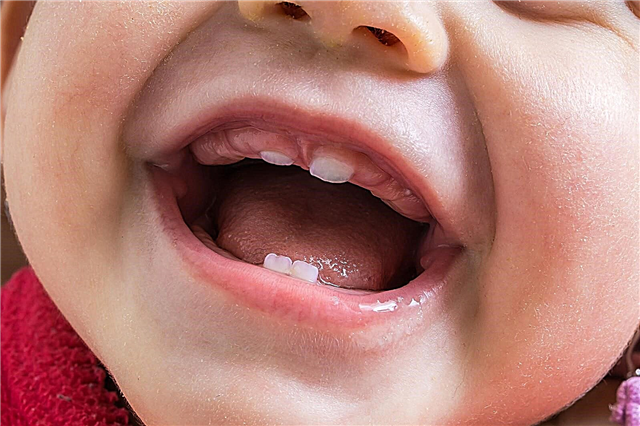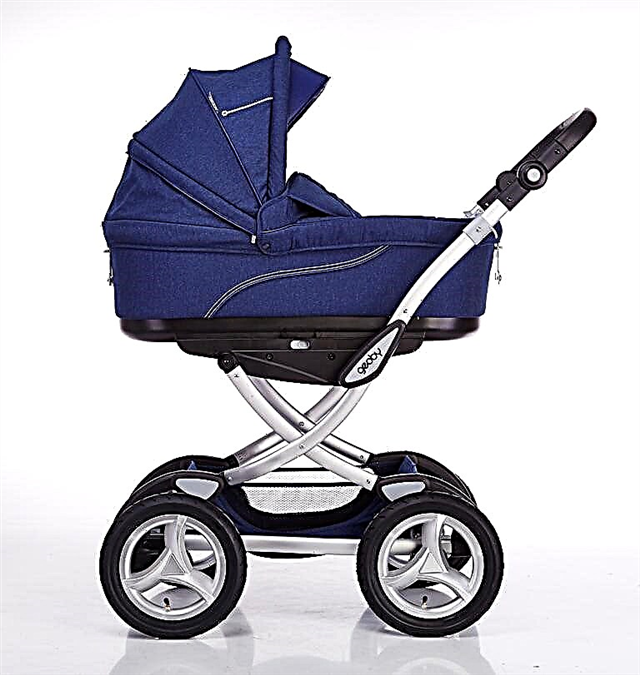The appearance of the first teeth in babies is an important stage in their development, indicating that the child's body is gradually preparing to consume adult food. Unfortunately, this process rarely goes smoothly. Most often, teething is accompanied by not the most pleasant side symptoms. If a child has no teeth in a year, most moms and dads begin to seriously panic.

Parents are always eagerly waiting for their baby's teeth to grow
When should teeth appear
Although the timing of the appearance of milk teeth in babies in medicine is strictly established, it should be understood that they are approximate. If pediatricians determine the period of eruption of the first tooth at the age of 4 to 7 months, this does not mean that you should worry if the tooth began to grow at the age of three months or appeared when the baby was 8-9 months old. Not too significant deviations are normal variants.
The situation is completely different if the child is already one year old, and his teeth do not even think to cut through. In this situation, it makes sense to worry and show the baby to the doctor. A similar situation may be associated with pathologies of the endocrine, nervous or even cardiovascular systems.

At some point, the baby's toothless smile ceases to touch the parents
The genetics and general health of the child affect the time of the eruption of the first teeth. If the baby is often sick and has a weakened immune system, it is likely that his teeth will begin to grow a little later than their peers.
The rate of appearance of teeth in children looks like this:
- lower front incisors - from 4 to 7 months;
- upper front incisors - from 7 to 9 months;
- lateral incisors (upper and lower) - from 10 months. up to 1 g;
- upper premolars - 1-1.5 g;
- lower premolars - 1.5-2 g;
- canines (upper and lower) - 2-2.5 g;
- second molars (lower and upper) - 2.5-3 g.
Important! Some babies may have two or more teeth erupted at the same time. This is normal, so there is nothing to worry about.
Why there are no teeth in a year
The answers to the question "why a child has no teeth a year" may be different. The most common causes of late eruption are as follows:
- genetic (if at least one of the parents had teeth late enough, the likelihood that the baby will face a similar problem is very high;
- climatic (among experts there is an opinion that in a warm climate, children’s teeth grow faster and better);
- quality of food;
- the quality of the consumed water;
- environmental factors;
- infectious diseases transferred by the baby (especially in severe form);
- deficiency of calcium and vitamins in the body.
The development of a baby is especially dependent on the quality of nutrition. If the baby is breastfed, it is very important that the mother eats balanced and healthy meals. Parents whose children grow up on artificial mixtures practically do not face this problem - these formulations usually contain the required amount of all nutrients.
A delay in the eruption of teeth in some cases may be associated with the difficult course of the mother's pregnancy, especially if certain complications occurred during the gestation period.
Sometimes the teeth cannot "break through" outward due to the fact that they are located incorrectly inside the gums (for example, horizontally). In this case, you cannot do without contacting a specialist.
An even more serious reason for the absence of teeth at the age of one year is the congenital absence of their primordia in a baby. This happens extremely rarely and is either a congenital pathology or is inherited.
What to do if there are no teeth in a year
Pediatric dentists allow a delay in the cutting of the first teeth by an average of six months. So if they haven't appeared in a year, you should wait a little longer. If the teeth are more than 6 months late, and the gums are not going to swell, you should immediately show the baby to a specialist. He will identify the cause of the problem and select adequate ways to solve it.

Teethers are available at any pharmacy.
It is categorically not recommended to independently diagnose a delay in teething in a baby. It is definitely unacceptable to prescribe treatment yourself.
The only thing that can be done is to take acceptable measures to stimulate the process. These are the following points:
- The kid needs to constantly slip something that he can chew. Better if it is something edible. For example, a bagel or drying. Otherwise, the child will start pulling toys into his mouth and easily pick up some kind of infection. Alternatively, you can purchase a special silicone teether at the pharmacy.
- A child who is not teething should be weaned off the pacifier urgently.
- The baby should start doing a light massage of the gums. Massage as gently as possible without causing pain. It is allowed to use a small spoon instead of fingers.
Important! It is better to have two teethers. While one child is chewing, the second can be cooled in the refrigerator - this will reduce pain during gum disease.
Is late teething dangerous
Despite the fact that the child's body develops according to an individual schedule, certain norms for the development and growth of the baby exist, and parents are guided by them.
For a long time, it was accepted to consider the belated appearance of teeth as an alarming sign. Relatively recently, another theory has appeared, according to which, the later the milk teeth grow, the healthier they will be. However, there is no convincing evidence in favor of such a statement, therefore it is better to overdo it than to miss it.

The doctor knows best whether to worry about the lack of teeth.
The reason for going to a specialist should be not only too late, but also too early appearance of the first teeth or their germination in an atypical order. The only serious danger that lies in the late eruption of teeth is the presence of certain hidden diseases. If specialists in the course of diagnostics come to the conclusion that the problem lies in heredity or lack of calcium, it is enough to make the necessary changes in the diet, drink vitamin complexes and it will be possible not to worry.



